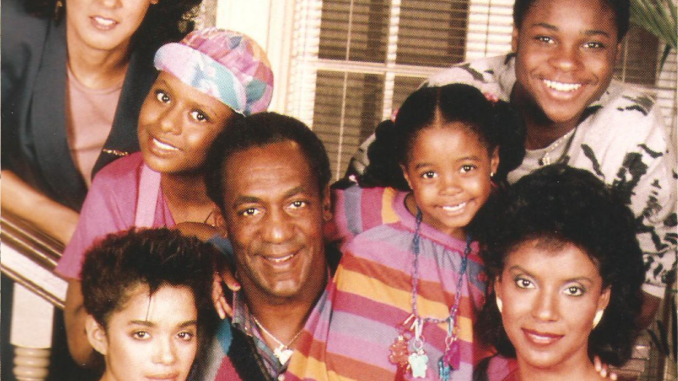
“Why Bill Cosby’s portrayal of Dr. Huxtable is still beloved after all these years”
Introduction: When Bill Cosby brought Dr. Heathcliff Huxtable to life on The Cosby Show, it wasn’t just a television role—it was a masterclass in character development and performance. The lovable, often comical patriarch of the Huxtable family became a defining figure in television history. While Cosby’s real-life controversies have complicated his legacy, there’s no denying the genius of his portrayal of Dr. Huxtable, a character that resonated deeply with audiences across racial and generational lines. So, what made Bill Cosby’s portrayal of the father figure so iconic and why does it remain beloved by fans to this day?
The Creation of Dr. Huxtable: Dr. Heathcliff Huxtable, or Cliff as his family affectionately called him, was an innovative departure from previous TV fathers. Cosby’s vision was to portray a father who was not only a source of wisdom and discipline but also an ever-present source of humor. In contrast to other sitcom fathers who were often depicted as bumbling or inept, Dr. Huxtable was the picture of intellectual authority and warmth.
The character’s depth was enhanced by Cosby’s incredible skill at balancing humor with moments of genuine emotional connection. Whether he was cracking jokes with his kids or offering sage advice, Dr. Huxtable’s charm was in his authenticity. He didn’t try to be perfect; rather, his imperfections made him more relatable. Cosby’s performance allowed the character to evolve from a strict, disciplined father figure to a beloved and approachable figure in American pop culture.
The Charm of Dr. Huxtable: Dr. Huxtable’s character was a unique blend of intellect, humor, and affection, making him a standout on television. As a doctor, he was a highly respected professional, but at home, he was the affectionate and playful father who joked around with his children. He had a sharp wit, often employing humor to both entertain and educate.
The show’s writers crafted episodes where Dr. Huxtable’s cleverness and charm were on full display. His ability to diffuse tense situations with humor or offer life lessons without coming across as preachy was a signature element of the character. One of the most beloved aspects of Dr. Huxtable’s character was his rapport with his children, especially Theo. The father-son dynamic between Dr. Huxtable and Theo was central to the series and often showcased the balancing act of discipline and love.
The Balance of Humor and Wisdom: A defining characteristic of Dr. Huxtable was his ability to combine humor with wisdom in a way that felt natural and organic. Cosby’s impeccable timing and ability to turn everyday moments into comedic gold set Dr. Huxtable apart from other TV dads. Whether he was lecturing Theo about the importance of education or guiding his daughter Denise through the challenges of life, Cosby’s delivery always balanced humor with serious advice.
This ability to make life lessons feel fun and accessible was crucial in making Dr. Huxtable a character that transcended his TV family and became a role model for millions of viewers. In a memorable scene from an early episode, Dr. Huxtable helps Theo cope with the fact that he’s struggling in school, telling him, “Theo, it’s not the end of the world. We all have our strengths and weaknesses.” This approach to fatherhood, full of humor and reassurance, resonated with parents and children alike.
Why Dr. Huxtable Endures: Despite the controversies surrounding Bill Cosby’s personal life, Dr. Huxtable remains a beloved figure in pop culture, in large part because of the universality of his character. Dr. Huxtable represents the ideal of a father who is both loving and authoritative—someone who instills respect while also maintaining a playful, approachable nature.
The legacy of Dr. Huxtable is also intertwined with the wider cultural shifts that The Cosby Show represented. The character of Cliff Huxtable was more than just a sitcom dad; he was a symbol of success, stability, and warmth. His role as a loving father who valued education, family, and humor spoke to a generation of viewers who wanted to see positive, relatable representations of family life.
Conclusion: Bill Cosby’s portrayal of Dr. Heathcliff Huxtable was a defining moment in TV history. The character’s blend of humor, intellect, and emotional depth set a new standard for father figures on television. Despite the complexities surrounding Cosby’s later years, Dr. Huxtable remains a lasting symbol of what a loving, humorous, and wise father figure can look like. His legacy lives on through The Cosby Show and continues to influence how we view family dynamics on TV.
